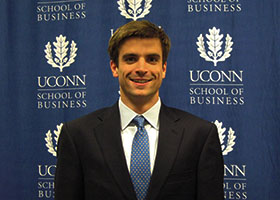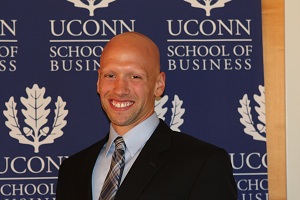Since its inception in 2000, the SMF Program has trained and influenced over +400 students across the Undergraduate and MBA/Graduate programs. The SMF is regarded as one of the most prestigious and valuable groups within the School of Business, as well as throughout the University. After successfully completing the year long program, SMF managers say that their experience was essential to providing them with a foundation for success in their career post-graduation. The SMF Alumni network is continuing to expand and become more involved, and is one the Program’s most critical assets for determining future success.
We reached out to some of the SMF Alumni who are now working in the industry to ask:
What did the SMF mean to you, and how has it helped you get to where you are today?
Tom Blankemeier
“The SMF was an invaluable experience that helped me develop a set of skills unique to any other college experience. The program’s design enables students to key into the many facets of business and not only learn how to invest, but also how to manage and understand the workings of a business from the ground up.”
Tom served in a leadership role as Treasurer/Secretary for the 2013-2014 UG SMF team,
Paul DeSalvo
“The SMF is more than just a series of classes, meetings, and presentations. It was an experience that defined the finance program at UConn. It is the kind of opportunity that allows you to compete with any student from any university and this is coming from someone who is now surrounded by Ivy League grads at work. Professor Terrion allows you to grow as a finance student because he challenges your thoughts and makes you think beyond the numbers. I can definitely say that I would not be standing where I am today without the critical thinking methods, advice, and insight that the SMF program had offered me.”
“The Student Managed Fund granted me the opportunity to work with and learn alongside some of the brightest students, alumni and professors at UConn’s School of Business. I experienced first hand the difficulties of making tough decisions in the face of imperfect information. As portfolio manager, I was able to collaborate with my peers and apply theoretical academic knowledge to real business scenarios. This was invaluable to my undergraduate education and continues to be relevant post-graduation.”


